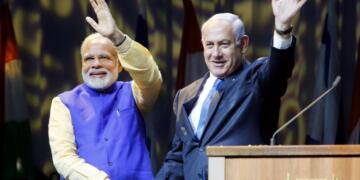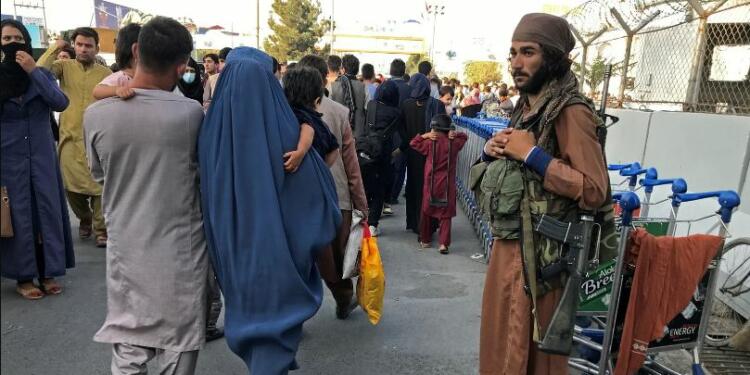The Taliban has run over Kabul. The savages have stormed the Afghan capital 20 years after they were driven out of it. Afghanistan has fallen to the Taliban, and a 20-year long war waged by the United States on the country has proven to be inconsequential. Today, the U.S. cannot claim that the Taliban does not pose a threat to America and its people around the world. The U.S. has achieved absolutely nothing. But why has the Taliban been able to withstand a two-decade long war? How has it emerged victorious against both the erstwhile Soviet Union and now, the United States of America?
Well, the Taliban and Afghan citizens are quite similar. Taliban fighters are Pashtuns, and the ordinary people of Afghanistan are too. They speak the same language, wear the same clothes, eat the same food and above all, follow the same religion. The people of Afghanistan – ordinary people leading normal lives and Talibani terrorists have so much in common. They are sons of the same soil, and of course, the opinions of women in Afghanistan do not matter.
It is not the Taliban alone which is a proponent of Shari’a law. Sure, the Taliban’s enforcement of it is brutal and not entirely appreciated by ordinary Afghans, but it is not like they are completely averse to the imposition of Sharia law. In fact, according to a Pew Research Centre study, nearly all Muslims in Afghanistan (99%) support Shari’a law and think it should be implemented throughout the country. 96% Afghans say converting others to Islam is a duty. 94% say wives are always obliged to obey their husbands. 85% say stoning is must for adultery. 79% say death is mandatory in cases of apostasy, while 39% say suicide bombing is justified.
From the Afghanistan Pew Survey conducted in non-Taliban times:
99% say they want Sharia
96% say converting others to Islam is a duty
94% say wife always obliged to obey husband
85% say stoning must for adultery
79% say death must for apostasy
39% say suicide bombing justified pic.twitter.com/UFPLCr5g7t— Anand Ranganathan (@ARanganathan72) August 16, 2021
In 2015, a 27-year-old Afghan woman was beaten and burned alive in the very heart of Kabul by a mob of angry men. Hundreds of people watched the killing of Farkhunda Malikzada, a student of the Quran and Islamic Shari’a law, while others participated in the rampage. These were not Talibani terrorists. These were ordinary Afghan men who killed a young girl over fake news of her having participated in blasphemy. This mob lynching happened right in front of an Islamic shrine in Kabul, and brought to light the rather all-pervasive sense of radicalism which has come to grip Afghanistan’s Islamic society.
There were over 7 lakh Sikhs and Hindus in Afghanistan in 1970. There was no Taliban, or even any theologically driven Islamist warlord back then. Yet, these minority Hindus and Sikhs faced a genocide, forcing them to be converted, killed or flee. Today, just about a few hundred Sikhs remain, and the number of Hindus in Afghanistan can be counted on the fingers. Were these Hindus and Sikhs persecuted by the Taliban? No, the ordinary Afghan population has a lot of explaining to do. Where did these minorities vanish?
If at all the Afghan people want to be freed from the Taliban – and that is a big ‘if’, they must free themselves of theological radicalism and toxicity, and hatred for the kufr. They cannot fight the Taliban if they are themselves sympathetic with many agendas of the terror organisation. The people of Afghanistan, in order to liberate themselves from the Taliban, must first get rid of Islamic radicalism themselves.
Why is it that barring a few provinces, the Taliban faced no resistance in large swathes of Afghanistan? There were literally thousands of people – ordinary Afghan citizens, who welcomed the Taliban into Kabul. If this is how a significant number of Afghans feel about the Taliban, then there is really no point discussing much about the organisation’s rise to power. If the Afghans want to be free, they must liberate their minds of radicalism. The Taliban needs to be seen as an enemy and not an uncomfortable ally. Only then will the Taliban fall. If not, even the United States was not able to defeat it, and the Afghan people certainly won’t.



























